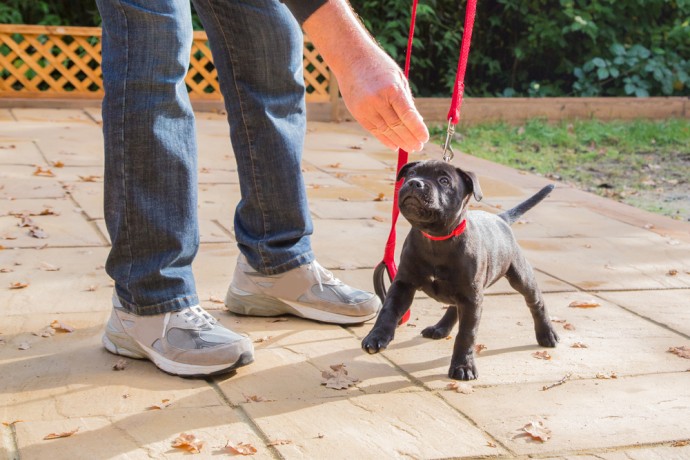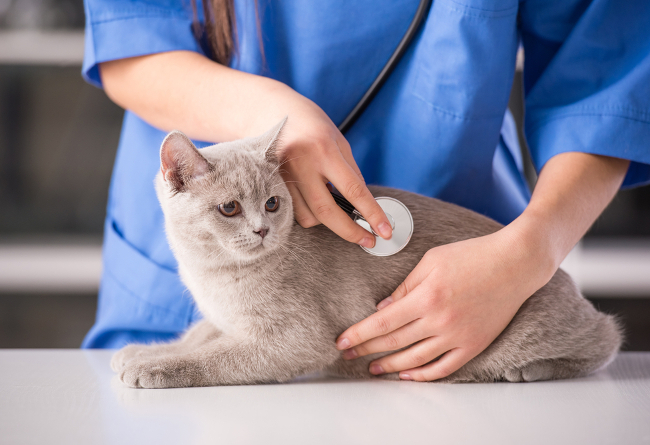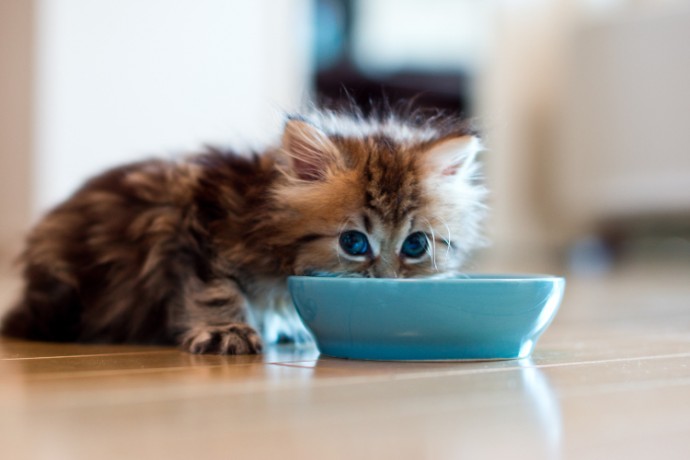Whether you have chosen to welcome a puppy or kitten – read our top tips on how to make your new pet feel safe and happy at home.
PET PROOF YOUR HOME:
One of the first and most important things you need to do to ensure your new animal baby’s safety is to pet proof your home. This means removing any poisonous plants, locking away kitchen and bathroom chemicals, small items that could be swallowed and removing electrical cords your new puppy or kitten could potentially chew. You should also be aware of anything that swings or hangs down – such as blind cords – as your new pet could become tangled or choked.
If you’re a new puppy owner, a child gate is a good idea as you can confine your pup to a small part of your home.
FEED FORMULATED FOOD:
In the first year of your new puppy or kitten’s life, it will seem as though someone has poured Mircale-Gro over them! And that is why it is important to feed them formulated puppy or kitten food to satisfy all their nutritional requirements. Always feed your new pet at the same times too so they become accustomed to a routine.
OBEDIENCE TRAINING:
It’s never too early to start training your new bundle of fur – this will help you to build a trusting relationship with your pet. Reward your new pet with puppy or kitten treats or praise for good behaviour – such as going to the toilet correctly, coming when called or allowing you to brush and groom them.
Puppy owners will be able to take their new canine companion to an obedience course once they are old enough – usually at about three or four months old.

HOUSE-TRAINING:
House-training your new puppy or kitten is time-consuming and takes patience but is essential for them (and you) to live a happy life.
If you have a new puppy, look for signs that your pup needs to go and aim to get them on a schedule. They should initially be taken out every two hours, up to six times a day and always after meals. Crate training is also an effective method and puppy training pads are useful should your four-legged friend get caught short.
Litter training your kitten should be fairly easy as cats instinctively bury their faeces. Put your kitten’s litter tray in a secluded spot or corner – after they’ve eaten or woken from a nap, place them in it or at hourly intervals. Your new feline will eventually get the idea!
BOOK A VISIT TO THE VETS:
Once you’ve brought your new puppy or kitten home, it’s important to set up an appointment with the vet as soon as possible.
New puppies will need vaccinations before they can go to public places, as well as flea and tick control. Kittens will need to be checked for worms, ear mites, fleas and also receive vaccines for diseases such as rabies.
The vet can also advise you on the best time to get your new pet spayed or neutered (unless you want more puppies and kittens!) Puppies and kittens can both be sterilised as early as eight weeks of age.

SOCIALISING:
Socialising your new pet is very important if you want to avoid future social anxiety, however it is also important not to overwhelm them. Everyone you introduce your new pet to will no doubt want to hold and touch them, but it’s best to limit handling for the first few days until your new pup or kitten has adjusted to their new home.
If introducing young children to baby animals, you must always supervise their interactions – show children how to correctly hold your new furry friend and how to be gentle when stroking them. It’s the same when familiarising adult dogs and cats to your new puppy or kitten – always supervise and never leave them alone together.
If you notice your pup or kitten seems frightened or nervous in a social situation, find a way to relieve them, such as with a treat or stroke to show them they needn’t be fearful.
CHOOSE THE RIGHT TOYS:
One of the many wonderful things about a new puppy or kitten is that they are extremely playful – you can have lots of fun choosing some brilliant puppy or kitten toys for them to play with!
However, avoid toys with sharp edges, buttons, bells and other small parts that can become detached easily and dangerous should your pup or kitten swallow them. Scratching posts are especially great for kittens to help discourage them from clawing at your curtains and furniture.
New puppies and kittens will initially miss their mother and litter – so we suggest buying some kind of soft toy that your new pet can cuddle up to – and later attack when they want a game! Another great tip to help pining puppies and kittens: a few weeks before you collect your new pet, take along a soft toy or blanket and ask the breeder if you can put it with the mother and litter. When you then take your new pup or kitten home, the toy or blanket will smell of their mother and help comfort them during those first nights.


